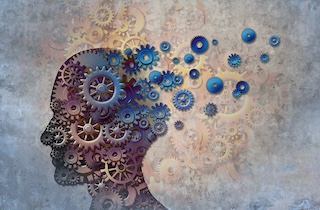November 26, 2024
by Patricia Tomasi

A new study published in Cell looked at how stress disrupts engram ensembles in lateral amygdala to generalize threat memory in mice. “We examined how acute stress impacted fearful memories,” study author Sheena Josselyn, Senior Scientist at Hospital for Sick Children told us. “We found that acute stress before a fearful event generalized the memory of this fearful event. That is, the subjects reacted fearfully both to the cues that predicted the fearful event and also safe cues.”
[More]
March 26, 2024
by Patricia Tomasi

A new study published in eLife looked at how hippocampal-occipital connectivity reflects autobiographical memory deficits in aphantasia. “Our study is about the relationship between inner images and our ability to recall personal past events (autobiographical memory),” study author Cornelia McCormick told us.
[More]
January 31, 2024
by Elizabeth Pratt

People remember moments immediately after a distressing episode with more clarity than the moment preceding the distressing event.
Research investigating memory and trauma published in Cognition and Emotion could help inform the approach to treating PTSD, assist clinicians in combating memory loss in Alzheimer’s and even improve evaluation of eyewitness testimonies.
[More]
February 14, 2023
by Patricia Tomasi

A new study published in the Journal of Personality and Social Psychology looked at attachment anxiety and how it predicts false memories when people can see the communicator. “Past research has linked attachment avoidance with forgetting specifically relational material,” study author Dr. Nathan W. Hudson told us. “Conversely, prior studies have shown that attachment anxiety predicts false memories in relationship contexts.”
[More]
April 12, 2022
by Patricia Tomasi

A new study published in the Journal of Neurobiology of Disease looked at organelle dysfunction in human astrocytes in Alzheimer’s Disease. “We have analyzed transcriptomic data (gene-expression data) from almost 800 patients with Alzheimer’s disease and controls to look for molecular signatures of astrocytes, a type of brain cell. Transcriptomes contain information about the cell genome, over 30,000 genes,” study author Elena Galea told us.
[More]
August 25, 2020
by Patricia Tomasi

A new study on aging and the brain published in the Journal of Nature Communications looked at the hippocampus region of the brain. “It's commonly accepted that aging negatively impacts most of our cognitive abilities, especially memory,” study author Zachariah M. Reagh told us. “While that is indeed the case, there might be more to the story.”
[More]
March 31, 2020
by Elizabeth Pratt

Being less agreeable in old age may be protective against Alzheimer’s disease.
Using brain imaging and psycho-cognitive evaluations, researchers from the University of Geneva and the University Hospitals of Geneva found that certain personality traits in elderly people were protective against neuro-degeneration.
[More]
October 1, 2019
by Patricia Tomasi

Stress is on the rise for women and it can lead to a host of health problems over the lifespan including depression, anxiety, obesity, and Alzheimer’s disease, an incurable brain disorder that destroys memory and the ability to perform simple tasks. Women, in fact, are more likely than men to develop Alzheimer’s disease. At first, researchers thought this was because women lived longer than men, however, more and more research is pointing to other factors, including stress.
[More]
Nearly everyone has at some time forgotten where they put their keys or lost their car in a crowded Wal-Mart parking lot, or even found themselves in a room wondering, “Was I coming in here for something, or going out?”
For people in their sixties or later, these events are commonplace. They’re called “Senior Moments”, and they can be very embarrassing. Most people ex...
[More]
Sleep shouldn’t be a luxury that we only grant ourselves on Saturday mornings. It’s a necessity if we want to have a healthy mind and body. Sleep gives us a chance to recharge, heal, and process our experiences. Lack of enough good quality sleep not only makes us grumpy, but it can also negatively impact our memory, our mood, and our overall health and well-being.
[More]